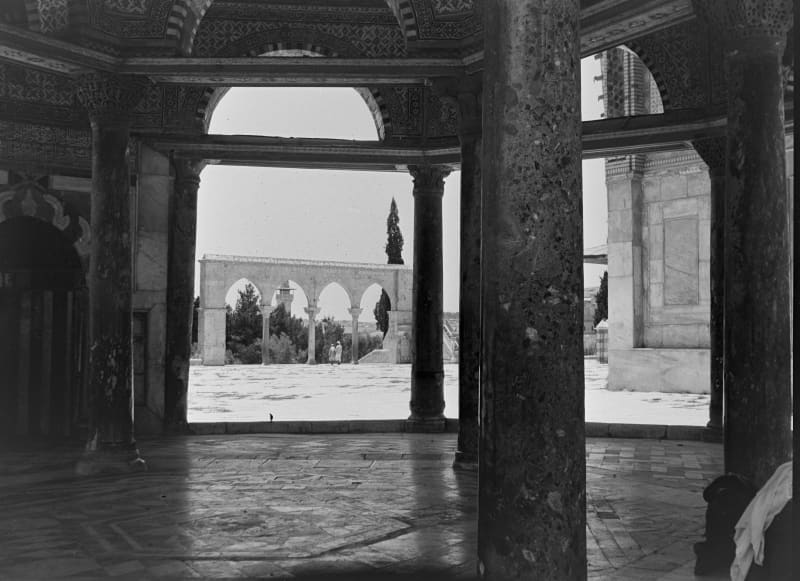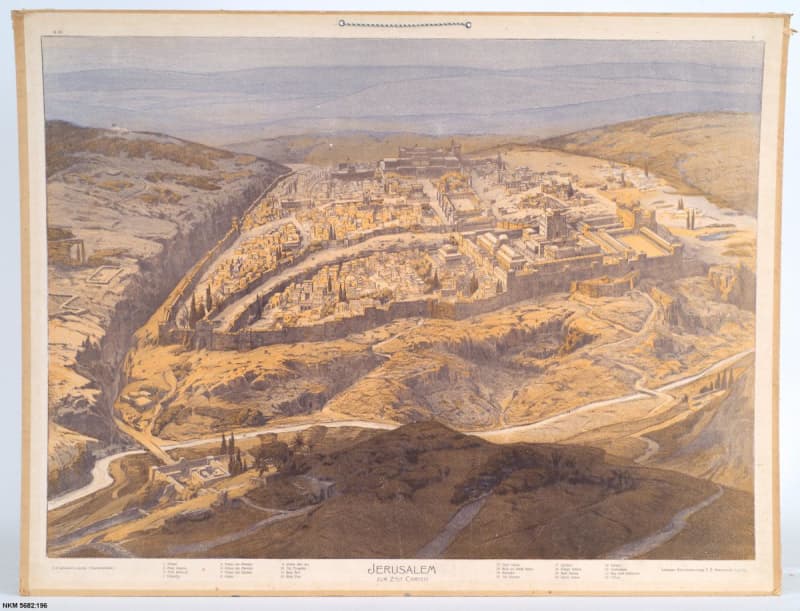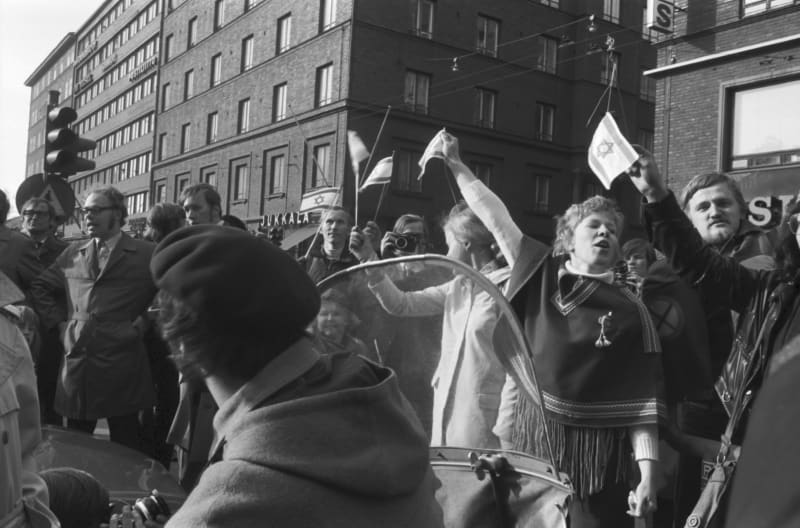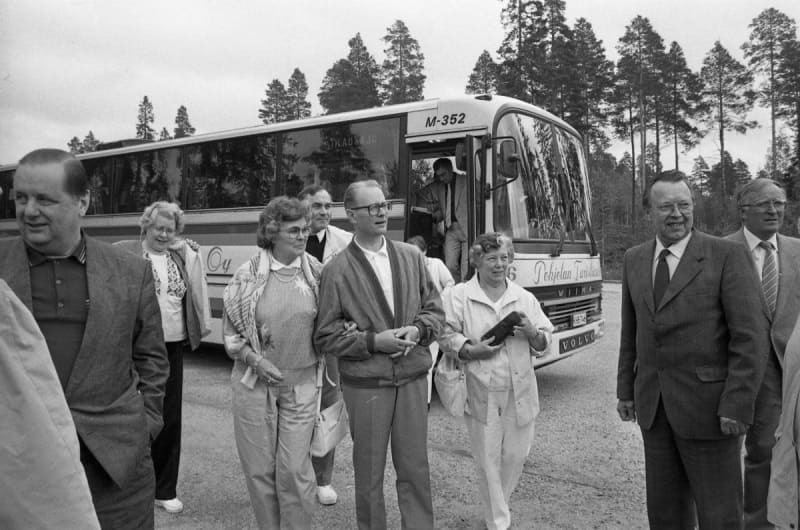The relationship between Christians and Jews has been problematic throughout history. It is therefore surprising that the most loyal and ardent supporters of the State of Israel come from among Christian believers. For them, the State of Israel is proof of the fulfilment of biblical prophecy.
Blue and white flags flew in a spring breeze as a group of friends of Israel gathered in central Helsinki last May. Police estimated that there were about 100 demonstrators representing 20 Israeli friendship organisations in Paasikivi Square, Yle News reported at the time.
The demonstration in Helsinki was related to the Israeli-Palestinian conflict. The organisation says it is marching to honour the victims of the Holocaust and to oppose anti-Semitism. At the same time, the movement “proclaims the biblical values of the mission to bless Israel.”
Stewart has written a book in which he traces the history of Christian Zionism in Finland.

By definition, Christian Zionism is the belief that the return of the Jews to the Holy Land and the birth of the current state of Israel in 1948 are signs of the fulfillment of Bible prophecies.
The topic started to interest Stewart years ago, when he traveled in Israel and the Palestinian territories as a young student of political history. Another intifada, a Palestinian uprising, was underway.
Among other things, Stewart visited the West Bank. In Jerusalem, he met a group of Finnish Christians, to whom he told what he had seen.
– An older lady said: \”It’s kind of a pity for those Palestinian children\”. Then it seemed as if a coil had gone on and he continued, \”But God has promised this whole land to the people of Israel.\”
The interlocutor clearly recognized the moral problem of the situation in the Middle East, but for him the solution could be found in God’s plan. Stewart says that the conversation continued to bother him.
Palestine was a disappointment for the 19th century traveller
Stewart traces the roots of Christian Zionism back to the end of the 19th century. It was a time when the first Finnish travelers arrived in Palestine.
The journey from the North to the Holy Land was still long and arduous, but thanks to railways and steamships it was still possible. The route usually went through Odessa, from where the ship transported across the Black Sea and the Mediterranean Sea to the port of Jaffa. Hotel accommodation was waiting on arrival. The connection was relatively busy, as the Russian Orthodox were the largest group of pilgrims traveling to Jerusalem.
Only a few dozen Finns visited Palestine before the First World War. The number was not large, but the stories spread, because almost everyone wrote about their experiences.

The top post was disappointing.
Palestine did not at all resemble the land of milk and honey described in the Sunday sermon. It was hot and noisy. Flies buzzed and a strange smell hit my nose. Outside Jerusalem, the land looked dry, uncultivable. And the strangest thing: unlike in Jesus’ time, the majority of the inhabitants were Arabs.
– Of course the travelers knew that a change had taken place since the time of Jesus. However, the stories in the Bible were so familiar that they created a strong anticipation. The country looked like it was under a curse, Stewart describes the feelings conveyed by the writings of Finnish travelers.

However, there was one exception in the negatively colored travelogues. The first Zionists had already arrived in Palestine, Jews from Europe who supported the idea of \u200b\u200bestablishing a Jewish state in Palestine.
– In them, you could see a lively pioneering spirit and a familiar European culture. It was also positive that, with Zionism, Jews began to immigrate to Palestine.
Finnish Christians were not disturbed by the fact that the Zionists were secularized Jews, some leftists and downright anti-religious. The contradiction is emphasized by the fact that believing Jews who already lived in Palestine were treated with contempt.
– They were compared to the Pharisees of Jesus’ time. There were also clearly anti-Jewish attitudes under the surface, says Stewart.
The State of Israel is seen as proof of the reliability of the Bible
According to Stewart, the positive attitude of Christians towards Zionism is explained by the tradition of reading the Bible, where the text is taken literally and attention is paid to prophecies and prophecies.
This kind of reading has prevailed especially in revivalist movements, for example Pentecostals, the Free Church and the Pentecostalism belonging to the Evangelical Lutheran Church.
– Already at the end of the 19th century in Finland, it was written that the Jews would return to the land that God had promised them. They would establish a state there and then turn to Jesus, i.e. become Christians. The Zionists were associated with this Bible prophecy.
The prophecy also included the idea of \u200b\u200bJesus’ return and the coming of the end times. The state of Israel was thus seen in a way as a prelude to the end of the world and it foreshadows the believers’ entry into paradise. So we were on the verge of big things.
When the state of Israel was actually born in 1948, there was great enthusiasm. It seemed that history followed the path indicated by the Bible and the second coming of Jesus was only a matter of time.
Even many skeptics began to wonder if the Bible’s prophecies had any meaning after all, when the Israeli army occupied the entire historic Palestinian territory in 1967 in the Six Day War. The success was so complete that it was easy to see divine guidance in it.

According to Timo R. Stewart, the idea of \u200b\u200bthe State of Israel as proof of Bible prophecies is still at the core of the activities of Christian friends of Israel.
– It’s less about what Christians think about Jews or the state of Israel than what they think about God and the Bible.
For Christians, the state of Israel shows God’s plan and it shows them that the Bible is reliable. According to Stewart, the view is a bit difficult to challenge.
– If you question Israel’s actions, it sounds to a Christian as if you are challenging God’s plan and the word of the Bible. We are not talking about politics, but about something wider, downright cosmic.
Before the Six Day War, Israel had many friends
Not all Christians are Christian Zionists, and not all those who favor the state of Israel are revivalist Christians.
According to Timo R. Stewart, the situation in Palestine became politicized as a result of the Six Day War in 1967.
Even at the time of its independence, Israel was seen as a small David as a Goliath in the squeeze of the Arab countries surrounding it. In Finland, Israel’s war of independence was often compared to the winter war.
It was difficult to justify the situation after the six-day war, in which the Israeli army had proven to be overwhelmingly strong.
As a result of the war, the Soviet Union broke off relations with Israel, and the dividing line of the Cold War was also drawn in the Middle East.

For one party, however, the issue of Israel was a matter of the heart. In the 1970 elections, the Christian Union of Finland entered the parliament. According to Stewart, the core of its electorate consisted of Pentecostals, Free Church and Lutheran Fifths – supporters of Christian Zionism.
– The Christian Union also announced that it supports the official foreign policy, but Israel was a hook used to profile one’s own electorate.
Although the Kristilline liitto increased its support throughout the 1970s and at its peak gained nine MPs, its influence on Finnish foreign policy remained small, according to Stewart.
When the party finally came to power in 1991, according to Stewart, the peak period of Israel friendship in Finland was already over.
However, Christian Zionism is doing well in the world. Pentecostal-charismatic Christianity is the most strongly growing forms of Christianity.
– Large groups of Nigerian, Colombian, Chinese and South Korean pilgrims can be seen in Jerusalem. They have arrived there to celebrate the state of Israel and the fulfillment of God’s plan.
However, the most politically influential are the American Christian Zionists. Their views are taken into account in the positions of both Republicans and Democrats.
– If you speak for Israel in the United States, it can be seen in the election success, says Timo R. Stewart.

